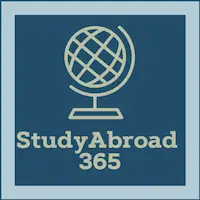Mozambique, located on the southeast coast of Africa, is known for its rich cultural heritage, tropical beaches, and vibrant wildlife. It offers a unique educational experience that blends Portuguese influences with local traditions, making it an appealing destination for students interested in studying in a diverse and dynamic environment.
Basic Facts
- Official name: Republic of Mozambique
- Capital city: Maputo
- Major cities: Beira, Nampula, Chimoio, Tete
- Population: Approximately 30 million
- Official language: Portuguese
- Currency: Mozambican Metical (MZN)
- Time zone: Central Africa Time (CAT), UTC +2
- Climate: Tropical, with a wet season from November to March and a dry season from April to October
- Government type: Presidential republic
Education System Overview
- Mozambique’s education system includes primary, secondary, and tertiary levels.
- The Ministry of Education and Human Development oversees the education sector.
- Higher education institutions include public and private universities, as well as polytechnics.
Top Universities
- Eduardo Mondlane University (UEM)
- The oldest and largest university in Mozambique, offering a wide range of programs in arts, sciences, and technology.
- Mozambique Island University (UniLúrio)
- Known for its programs in marine biology and agriculture.
- Pedagogical University
- Focuses on teacher training and educational sciences.
Popular Courses and Programs
- Marine Biology and Oceanography
- Agricultural Sciences
- Public Health and Medicine
- Education and Teacher Training
- Business and Economics
- Engineering and Technology
Admission Requirements
- General requirements include a high school diploma or equivalent.
- Specific academic qualifications may vary by program and institution.
- Language proficiency in Portuguese; some institutions offer programs in English.
- Application processes typically include the submission of academic transcripts, a completed application form, and sometimes an entrance exam or interview.
Cost of Education
- Tuition fees for undergraduate programs range from $500 to $2,500 per year.
- Postgraduate programs may cost between $1,000 and $3,000 per year.
- Scholarships and financial aid options are available through the Mozambican government, NGOs, and international organizations.
Living Costs and Accommodation
- The average cost of living is low, with monthly expenses ranging from $200 to $500.
- Accommodation options include university dormitories, private apartments, and shared housing.
- On-campus housing is generally more affordable, while private apartments offer more independence.
Visa and Immigration
- Student Visa
- Required for non-Mozambican international students.
- The application process includes a letter of acceptance from a Mozambican educational institution, proof of financial means, health insurance, and a valid passport.
- Students may need to apply for a residence permit upon arrival.
- International students are generally allowed to work part-time during their studies, usually up to 20 hours per week.
Cultural and Social Aspects
- Mozambique is known for its multicultural society, influenced by African, Portuguese, and Indian cultures.
- Social norms emphasize community, music, and dance, with traditional ceremonies and vibrant festivals.
- Students can engage in various cultural activities, explore the beautiful coastal areas, and participate in community service.
Employment Opportunities
- Part-time job options for students include roles in education, tourism, and services.
- Post-graduation employment opportunities are growing, especially in sectors such as agriculture, healthcare, and natural resources.
- Graduates may be eligible for a temporary residence permit for job search after completing their studies.
Health and Safety
- Mozambique has a developing healthcare system with basic facilities in urban areas and limited services in rural regions.
- Health insurance is recommended for international students.
- Mozambique is generally safe, but students should be aware of the local safety advisories and take standard precautions.
Travel and Transportation
- Public transportation includes buses and minibuses (chapas), with limited rail services.
- The main international airport is Maputo International Airport.
- Popular travel destinations include the Bazaruto Archipelago, Gorongosa National Park, and the historical city of Ilha de Moçambique.
Testimonials and Case Studies
- “Studying marine biology in Mozambique has been a dream come true. The university’s access to diverse marine ecosystems provides unparalleled learning opportunities.” – Jasmine, an international student from Australia.
- “The agricultural program here has given me practical insights into tropical farming, which I plan to apply back in my home country.” – Thomas, an international student from Kenya.
Useful Resources and Contacts
- Ministry of Education and Human Development
- Eduardo Mondlane University (UEM)
- Mozambique Island University (UniLúrio)
- Pedagogical University
- Mozambique Immigration
Conclusion
Mozambique offers an enriching academic environment with opportunities to explore its vibrant culture and stunning natural landscapes. With a focus on practical and applied sciences, it is a great destination for students interested in fields like marine biology, agriculture, and public health.



